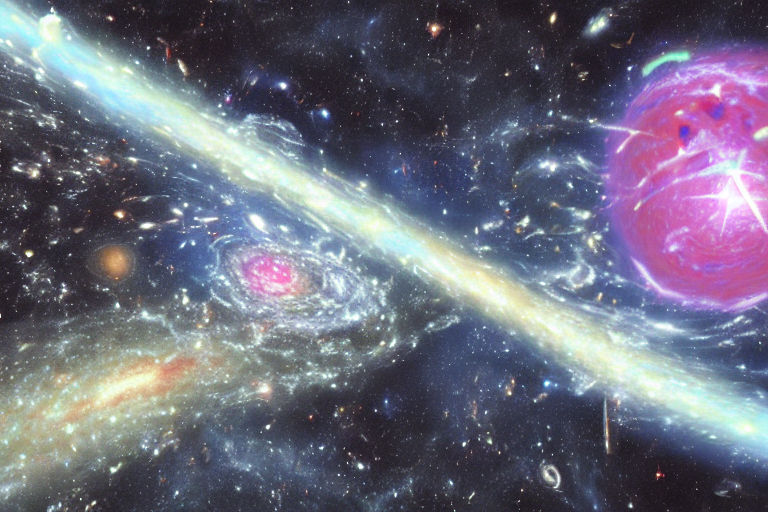The Expansion of the Universe: Dark Matter, Dark Energy, and the Fate of the Cosmos
Have you ever wondered what lies beyond our observable universe? Scientists have been studying the cosmos for centuries, and yet, there are still many unanswered questions. One of the most pressing questions today concerns the expansion of the universe. In this article, we will explore the concepts of dark matter, dark energy, and their impact on the fate of our cosmos.
The Big Bang Theory
First, let's go back to the beginning. According to the Big Bang Theory, the universe began 13.8 billion years ago as a singularity, an infinitely hot and dense point. The universe has been expanding ever since, and scientists have been studying this expansion for decades.
Dark Matter
One of the most mysterious aspects of the universe is dark matter. This type of matter is invisible to telescopes and does not interact with light or any other known form of electromagnetic radiation. However, it has a gravitational pull, meaning that it influences the motion of stars and galaxies. Scientists estimate that dark matter makes up approximately 85% of the mass in the universe. Even though it is difficult to detect directly, it is believed to play a crucial role in the formation and evolution of galaxies.
Dark Energy
Dark energy is another mysterious concept in the study of the universe. Unlike dark matter, dark energy is not a type of matter, but rather a force that is believed to be causing the expansion of the universe to accelerate. This means that as time goes on, the universe is expanding at an increasingly faster rate. Scientists estimate that dark energy makes up approximately 68% of the energy in the universe. However, we know very little about its true nature.
The Fate of the Universe
The discovery of dark matter and dark energy has led scientists to speculate about the ultimate fate of the universe. There are currently three competing theories about what could happen:
-
The Big Freeze: If dark energy continues to accelerate the expansion of the universe, then eventually all matter will be spread so thin that it will no longer be able to form stars and galaxies. The universe will become a cold, dark, and empty place.
-
The Big Crunch: Alternately, if the gravitational pull of dark matter is strong enough, the expansion of the universe could slow down and eventually reverse. In this case, the universe will collapse in on itself, resulting in a "big crunch" that will create a massive black hole.
-
The Big Rip: The third theory suggests that dark energy could become stronger over time, eventually becoming so forceful that it will rip everything in the universe apart, including subatomic particles.
While it is impossible to predict the exact fate of our universe, it is fascinating to think about the possibilities. What is clear is that the study of the cosmos is far from over, and scientists will undoubtedly continue to make new discoveries in the years to come.
In conclusion, the expansion of the universe is a topic that has captivated scientists and enthusiasts alike for many years. With the discovery of dark matter and dark energy, we are beginning to unravel the mysteries of the universe and understand its true nature. Whether it is the Big Freeze, the Big Crunch, or the Big Rip that ultimately awaits us, one thing is for sure: the universe will never cease to amaze us.



